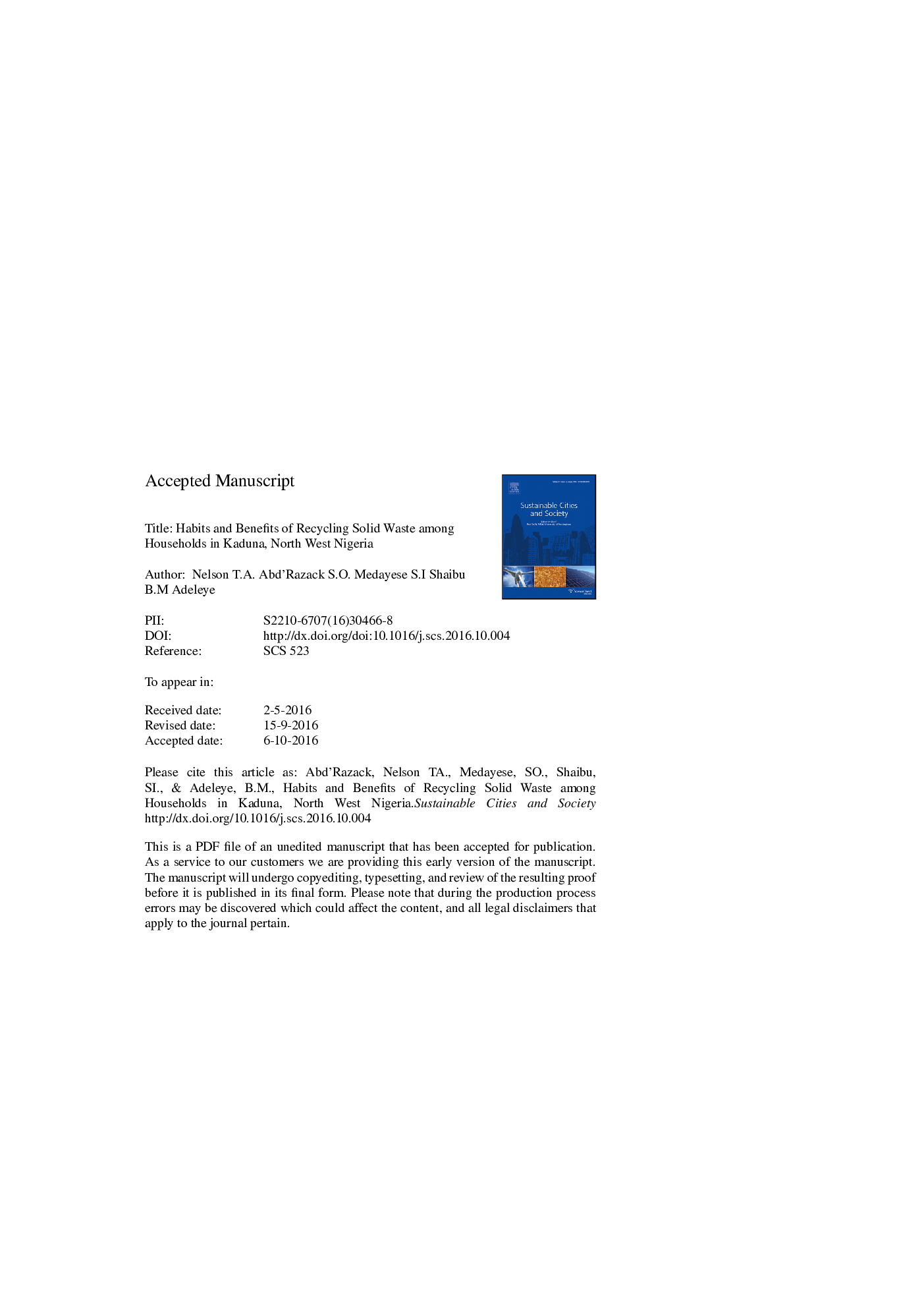| Article ID | Journal | Published Year | Pages | File Type |
|---|---|---|---|---|
| 4928237 | Sustainable Cities and Society | 2017 | 23 Pages |
Abstract
Solid waste generation is an unavoidable product of man's activities, however, sustainable management of such waste is a challenge faced in many towns and cities in Nigeria. Many cities in Nigeria including Kaduna lack adequate plans and infrastructure required for efficient and sustainable management of municipal solid waste. This paper assesses the perception of households in Kaduna metropolis, north western Nigeria on the issue of solid waste recycling and benefits derived among households. Quantitative approach was used in data collection and stratified random sampling was used to select respondents. Random sampling was used to administer 500 questionnaires to the households. Descriptive statistics were used to analyze the perception and benefit of recycling and correlation of the benefits and habit of recycling was carried out. The result indicates that low income households are found to recycle their waste compared to high income households. The type of housing occupied by the respondents also indicated their recycling habits. This has greater effect on the general environmental management in the city. Correlation analysis indicated that there are three basic recycling habits among the people, which are: disposal, Segregation and Information gathering. The research indicated that four elements of perceptions about recycling benefit households in the city: Environmental Preservation, Resources and Cost Conservation, Monetary Reward and Environmental Awareness.
Keywords
Related Topics
Physical Sciences and Engineering
Energy
Renewable Energy, Sustainability and the Environment
Authors
Nelson T.A. Abd'Razack, S.O. Medayese, S.I Shaibu, B.M Adeleye,
